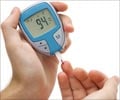A team of scientists in Sweden have warned that gorging too much on fat-rich junk food may cause drastic changes to a gene that helps muscle cells burn fat.
Juleen Zierath, of the Karolinska Institute in Stockholm, says that her team's findings may help improve the scientific understanding of how type II diabetes develops in adulthood."Somehow, the environment plays on the genes we have," says the lead researcher, adding that her study provides new clues to how this happens.
She says that it may be possible that the altered cells become so engorged with unburnt fat that they become "diabetic", and stop accepting signals from the hormone insulin, which normally triggers the absorption of glucose from the bloodstream.
However, proving that components in the diet can permanently alter genes is itself a breakthrough, as it provides the first evidence that the food people eat may change the function of their DNA, a process scientifically known as "epigenetics".
During the study, the researchers observed that the DNA itself remained unchanged, except for a masking process called methylation that can permanently mothball a gene by capping individual chemical units or bases.
Before the researchers undertook this research, they had already found in a previous study that muscle cells from people with type II diabetes showed such telltale epigenetic alterations to their DNA, particularly in the PGC-1 gene, which orchestrates metabolic programmes critical to the burning of fat in mitochondria, the chambers in cells that generate energy.
Advertisement
The team found that the PGC-1 gene became methylated, just as it is in people with diabetes.
Advertisement
She says that the fact that fat produces such an effect is highly significant, as it means that over-consumption of junk food may cause the same response.
"It suggests that if you eat a fat-rich diet, something in that - either the fat itself or the build up of metabolites - triggers the methylation of genes. The net effect is that it switches off the gene," says Zierath.
The team's analyses also reveal that the shutdown of PGC-1 led to inactivation of other genes vital for burning or transporting fat.
Zierath says that her team's next step will be to find out how different diets affect the methylation status of PGC-1 and other genes vital for burning energy, hoping that their efforts will lead to the discovery of a potential mechanism by which type II diabetes develops.
A research article on her study has been published in the journal Cell Metabolism.
Source-ANI
SRM















